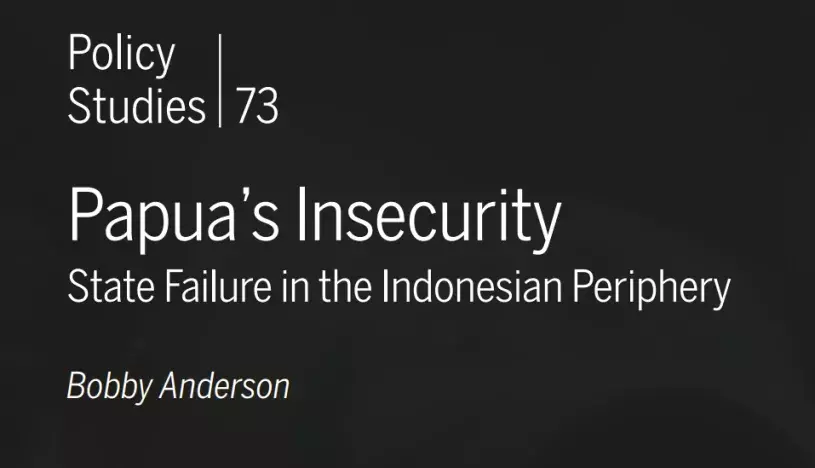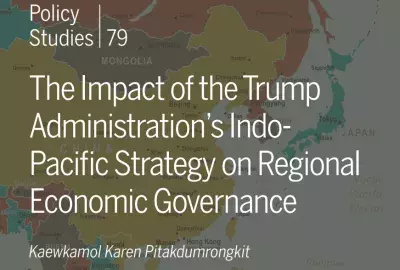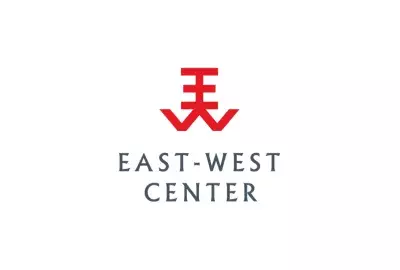Error message

Hard copies are available from Amazon.com. In Asia, hard copies are available from the
Institute of Southeast Asian Studies (ISEAS).
West Papua is the most violent area of Indonesia. Indonesian security forces battle the country's last active separatist insurgency there. The majority of Indonesia's political prisoners are Papuans, and support for independence is widespread. But military repression and indigenous resistance are only one part of a complex topography of insecurity in Papua: vigilantism, clan conflict, and other forms of horizontal violence produce more casualties than the vertical conflict that is often the exclusive focus of international accounts of contemporary Papua. Similarly, Papua's coerced incorporation into Indonesia in 1969 is not unique; it mirrors a pattern of long-term annexation found in other remote and highland areas of South and Southeast Asia. What distinguishes Papua is the near-total absence of the state in indigenous areas. This is the consequence of a morass of policy dysfunction over time that compounds the insecurity that ordinary Papuans face. The author illuminates the diverse and local sources of insecurity that indicate too little state as opposed to too much, challenges common perceptions of insecurity in Papua, and offers a prescription of policy initiatives. These include the reform of a violent and unaccountable security sector as a part of a broader reconciliation process and the urgent need for a comprehensive indigenous-centered development policy.
About the author
Bobby Anderson has managed community-driven development, ex-combatant reintegration, livelihoods, infrastructure, and other projects for organizations including USAID, the World Bank, and the International Organization for Migration. He worked in Papua, Indonesia from 2010 until 2015; he has also worked in the Indonesian provinces of Aceh, Central Sulawesi, and Maluku, as well as Afghanistan and the former Yugoslavia. A graduate of the University of Bradford (UK) Department of Peace Studies, and a former Rotary Peace Fellow at Chulalongkorn University, Bobby is currently a Lee Kuan Yew scholar at the National University of Singapore's Lee Kuan Yew School of Public Policy.

Hard copies are available from Amazon.com. In Asia, hard copies are available from the
Institute of Southeast Asian Studies (ISEAS).
West Papua is the most violent area of Indonesia. Indonesian security forces battle the country's last active separatist insurgency there. The majority of Indonesia's political prisoners are Papuans, and support for independence is widespread. But military repression and indigenous resistance are only one part of a complex topography of insecurity in Papua: vigilantism, clan conflict, and other forms of horizontal violence produce more casualties than the vertical conflict that is often the exclusive focus of international accounts of contemporary Papua. Similarly, Papua's coerced incorporation into Indonesia in 1969 is not unique; it mirrors a pattern of long-term annexation found in other remote and highland areas of South and Southeast Asia. What distinguishes Papua is the near-total absence of the state in indigenous areas. This is the consequence of a morass of policy dysfunction over time that compounds the insecurity that ordinary Papuans face. The author illuminates the diverse and local sources of insecurity that indicate too little state as opposed to too much, challenges common perceptions of insecurity in Papua, and offers a prescription of policy initiatives. These include the reform of a violent and unaccountable security sector as a part of a broader reconciliation process and the urgent need for a comprehensive indigenous-centered development policy.
About the author
Bobby Anderson has managed community-driven development, ex-combatant reintegration, livelihoods, infrastructure, and other projects for organizations including USAID, the World Bank, and the International Organization for Migration. He worked in Papua, Indonesia from 2010 until 2015; he has also worked in the Indonesian provinces of Aceh, Central Sulawesi, and Maluku, as well as Afghanistan and the former Yugoslavia. A graduate of the University of Bradford (UK) Department of Peace Studies, and a former Rotary Peace Fellow at Chulalongkorn University, Bobby is currently a Lee Kuan Yew scholar at the National University of Singapore's Lee Kuan Yew School of Public Policy.








